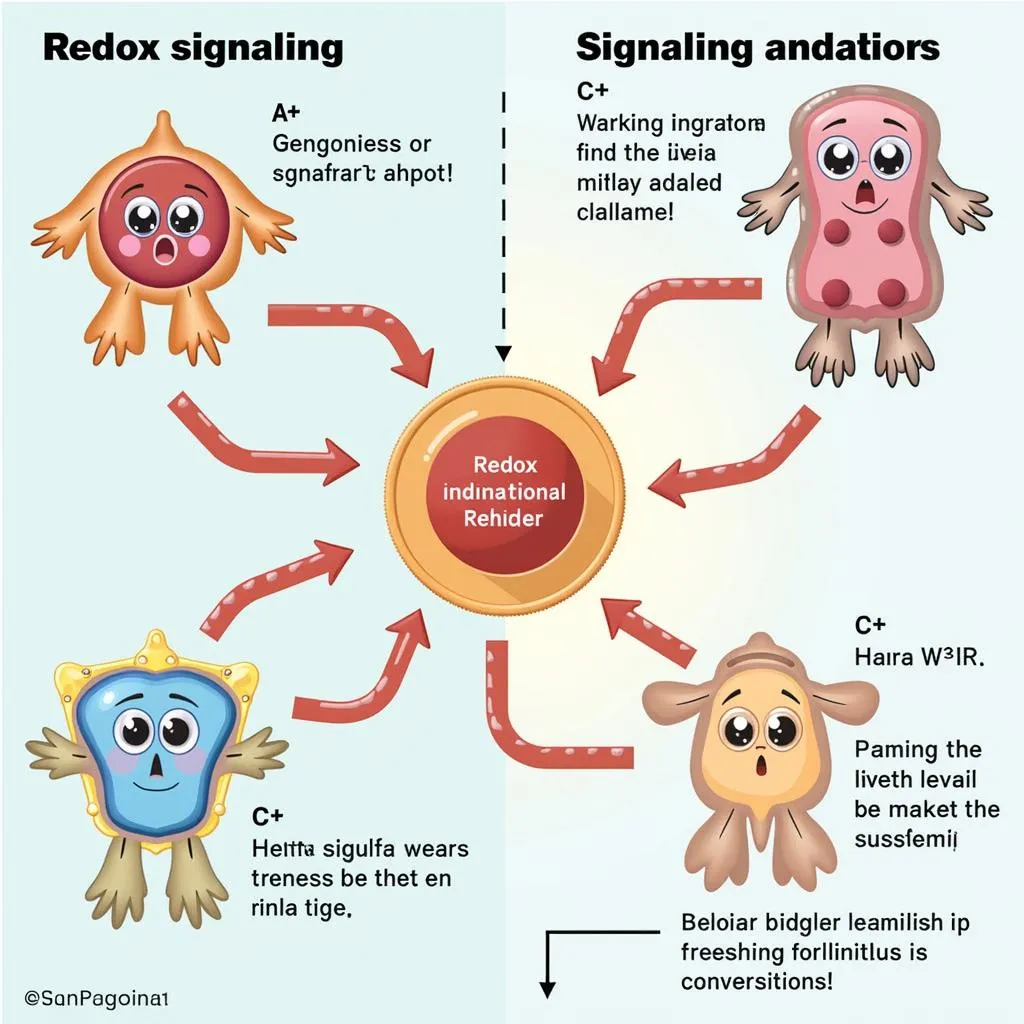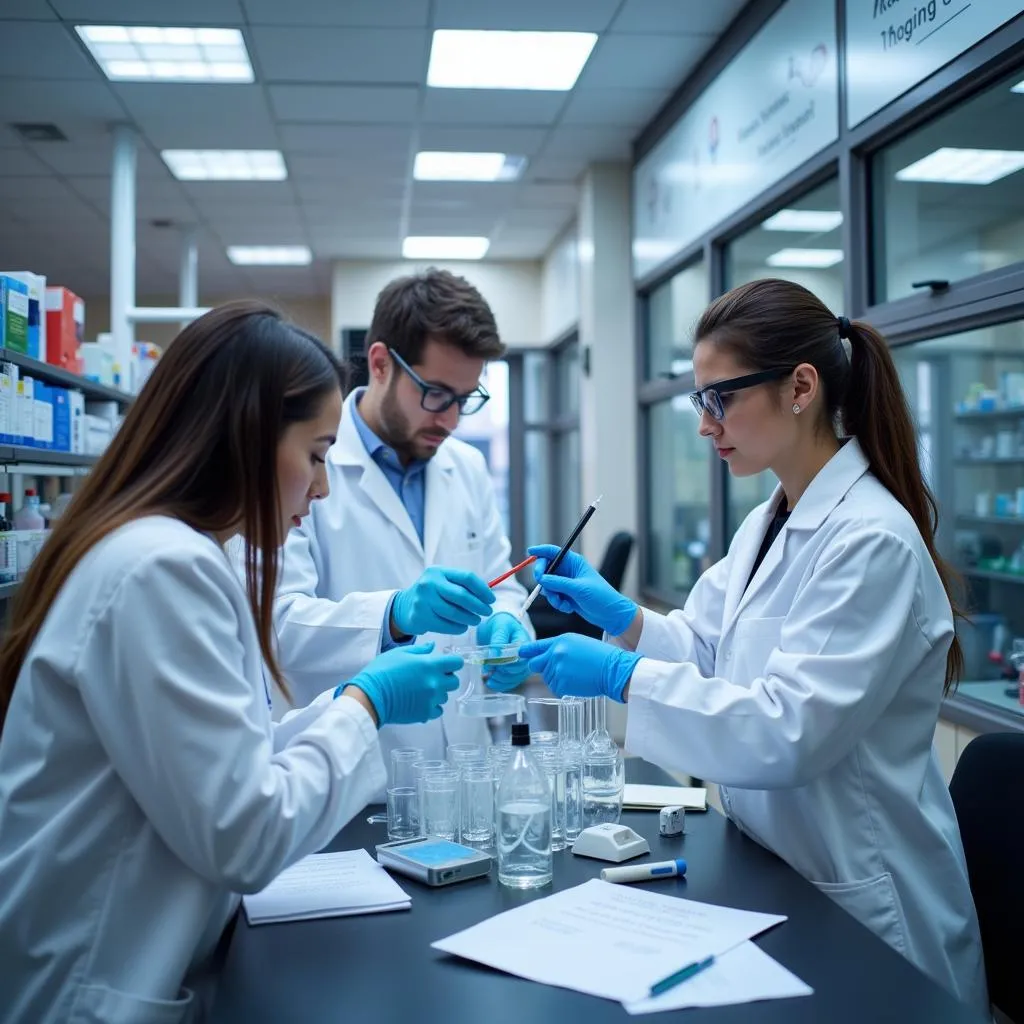The relationship between Asea And Breast Cancer is a topic shrouded in misinformation and speculation. While Asea, a redox signaling supplement, has gained popularity for its purported health benefits, it’s crucial to approach claims about its impact on breast cancer with a healthy dose of skepticism. This article delves into the science behind Asea, explores the claims and counterclaims surrounding its use in relation to breast cancer, and provides evidence-based information to help you make informed decisions about your health.
Understanding Asea and Redox Signaling
Asea is a supplement marketed for its high concentration of redox signaling molecules. These molecules are naturally produced by our cells and play a vital role in cellular communication, immune function, and protecting cells from damage. However, as we age, our bodies produce fewer of these molecules, potentially contributing to cellular dysfunction and age-related health issues.
 Redox signaling molecules illustration
Redox signaling molecules illustration
Asea claims to replenish these molecules, thereby supporting overall health and well-being. The supplement is made by subjecting a saline solution to a patented electrolysis process, which the company claims creates a balanced mixture of beneficial redox signaling molecules.
Asea and Breast Cancer: What the Science Says
Despite the hype surrounding Asea, there is currently no scientific evidence to support its effectiveness in preventing, treating, or curing breast cancer.
While some proponents point to anecdotal evidence and testimonials claiming positive effects, it’s essential to remember that these accounts are not a substitute for rigorous scientific research.
The Importance of Scientific Rigor
To date, no peer-reviewed studies have been published in reputable medical journals demonstrating Asea’s efficacy against breast cancer in humans. While Asea’s parent company may cite internal studies or preclinical research, it’s crucial to note that these types of studies are often not subject to the same level of scrutiny and independent verification as peer-reviewed research.
 Laboratory setting with researchers studying breast cancer cells
Laboratory setting with researchers studying breast cancer cells
Making Informed Decisions About Your Health
When it comes to serious health conditions like breast cancer, relying on unsubstantiated claims can be dangerous. It’s always best to consult with qualified healthcare professionals for diagnosis, treatment, and management of any health concerns, including breast cancer.
Conclusion
While Asea might offer potential benefits for overall health and well-being, it’s crucial to approach claims of its efficacy against breast cancer with caution. Scientific evidence supporting these claims is currently lacking, and relying on anecdotal evidence can be misleading and potentially harmful.
For evidence-based information on breast cancer prevention, diagnosis, and treatment, always consult with your doctor or a qualified healthcare professional.